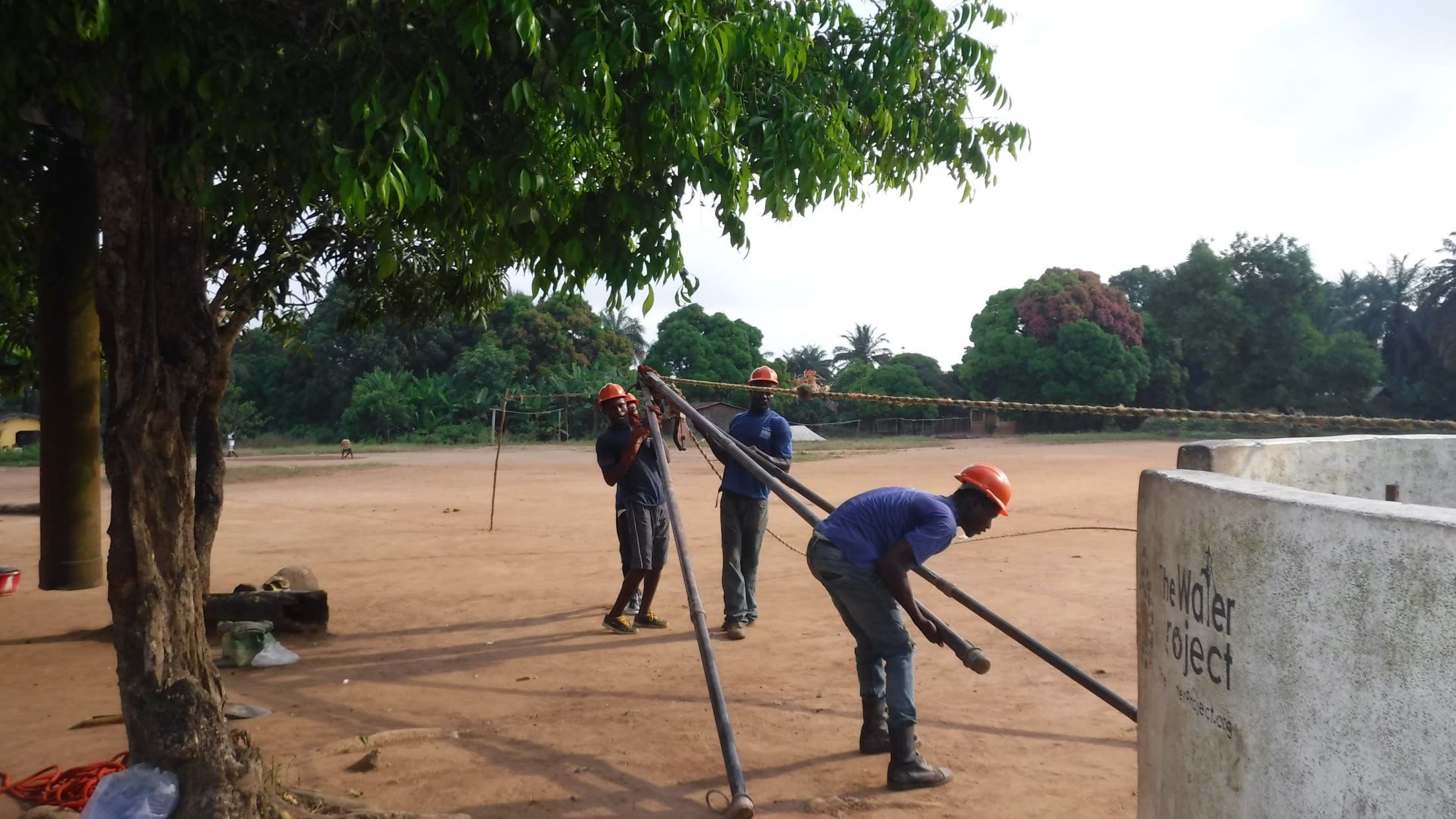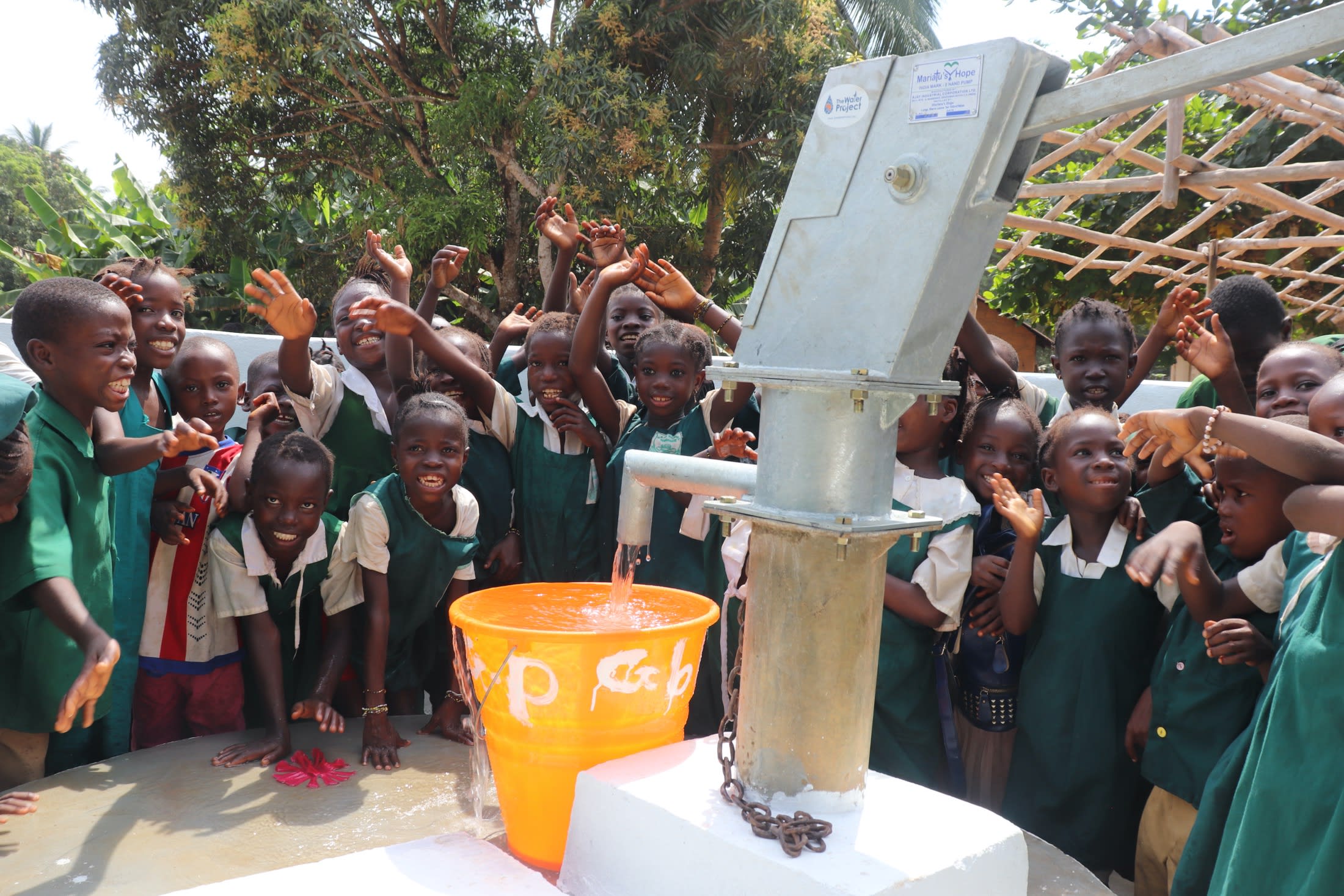The Mamankie DEC Primary School is located in the rural community of Mamankie with the majority of the residents dependent on farming and fishing. When schools are closed one could hardly see children playing around the village. This is because the parents take them along when going for their farming and fishing activities.
The Mamankie community is very much vegetated with big trees covering most of their houses. Some buildings in this community, including the school and the only health post, are modern buildings. More than half of the houses are built from mud blocks with cement plastering with zinc roofs whilst few are still olden days buildings with mud blocks, unplastered.
The school was first started by the present Head Teacher Mr. Francis Momodu Kamara with some village heads in the year 1998. During that time, the enrolment was 14 students. They used a mud block house in the village as a school. The school expanded in 2000 due to significant support from the national government. Student enrollment began to grow and today more than 350 students attend.
A normal day of a student attending this school differs from that of a student attending school at the urban area. In the earlier hours of the morning, the school going kids will rise to fetch water either at close by wells or the stream and help their parents with some domestic work at home. Some will even accompany their parents to their farms before coming to prepare themselves for school. A couple of them do go late for school because of the activities they engaged in before leaving for school.
But water during the school day is a challenge for the students. The well on the school grounds runs dry for months at a time. So, the students must turn to other sources in the community - leading them to lose time meant to learn to fetch water.
"At certain times of the year, when this school pump dries up, we must take the little grown-up kids from the school to fetch drinking water at other water sources every day," said Head Teacher Kamara.
"This will make the kids miss part of their school lesson for that day. This is what concerns me the most.”
The well is also shared with the local community. People are able to use it when school is not in session since it is primarily for the students. That means that the households near the school must also seek out alternative water sources during the periods when the well runs dry. They too lose valuable time and energy trying to get water.
Here’s what we’re going to do about it:
Well Rehabilitation
The well marked for this overhaul needs major work to supply adequate, clean water to the school year-round. The pump will be removed, and a hand auger will be lowered inside and powered by a drill team. This hand auger will allow the team to drill several meters deeper to hit a sufficient water column that will ensure the well supplies water throughout all seasons.
As the team drills, casing will be installed, transforming the bottom of this hand-dug well into a borehole. PVC piping will connect this lower system directly to the pump, a construction that we know will also improve the quality of water.
Once this plan is implemented, everyone within the community will have access to safe drinking water in both quality and quantity, even through the dry months.
Hygiene and Sanitation Training
There will be hygiene and sanitation training sessions offered for three days in a row.
No handwashing stations were observed here. After our visit, the hygiene and sanitation trainer decided it would be best to teach community members how to build a tippy tap (a handwashing station built with a jerrycan, string, and sticks). They will use these tippy taps for handwashing demonstrations, and will also teach about other tools like dish racks and the importance of properly penning in animals.
These trainings will also strengthen the water user committee that manages and maintains this well. They enforce proper behavior and report to us whenever they need our help solving a serious problem, like a pump breakdown.




































